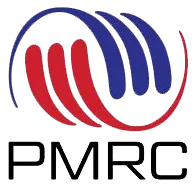Understanding Chronic Pain: Causes, Types, and Risk Factors

- posted: Mar. 27, 2024
Chronic pain can be difficult to manage, leading to other problems like inactivity, weight gain, depression, high blood pressure, and more. Our board-certified Interventional Pain Management Specialist, Dr. Anthony Alexander, and his team at The Pain Medicine & Rehabilitation Center offer a wide range of treatment options, including medication management and interventional procedures. He has two convenient office locations in Seymour and Jeffersonville, IN.
What You Need To Know About Chronic Pain
Chronic pain is defined as pain that has lasted longer than three months. There are several potential causes of chronic pain, including:
- An injury or accident
- A medical condition such as rheumatoid arthritis or osteoarthritis
- A surgery that has led to the formation of scar tissue
Pain is classified into various types, such as:
Nociceptive pain, results from conditions like inflammation, sprains, fractures, burns, and bruises. Nociceptive pain is caused by the stimulation of pain receptors known as nociceptors.
Neuropathic, or nerve pain, results from poor function or damage to the nervous system. Diabetic neuropathy and sciatica are two examples of neuropathic pain.
Mixed pain, which is a combination of nociceptive and neuropathic pain. Migraine headaches and myofascial pain are two examples of mixed pain.
Several factors can increase your risk of developing chronic pain. Genetics plays a role in some types of chronic pain, including migraines. Other risk factors include:
- Being overweight
- Being older
- Experiencing a previous injury
- Experiencing a high level of stress
- Having a physically demanding occupation
You should visit our pain management doctor if you:
- Can’t sleep because of the pain
- Are canceling events because of pain
- Are taking excessive amounts of over-the-counter pain medications
- Aren’t getting relief from your medications
- Can’t move well due to pain
- Are experiencing pain that has lasted for more than three months
Our pain management specialist will diagnose the cause of your chronic pain, and recommend pain management options, which can include:
- Medications to relieve pain and inflammation, including corticosteroids, anti-inflammatory medications, and others
- Transcutaneous nerve stimulation (TENS) to relax muscle tension and ease pain
- Injection therapy, to reduce swelling, or block nerves and limit pain sensation
For severe chronic pain, your doctor may recommend an implantable device to deliver medication. Surgery may be indicated as a treatment, depending on the cause of your chronic pain.
Want To Know More About the Treatment of Chronic Pain?
To learn more about chronic pain types, causes, risks, and treatment options, call The Pain Medicine & Rehabilitation Center and schedule an appointment with Dr. Alexander at either the Seymour or Jeffersonville, IN, offices by calling (812) 523-3700. Don’t wait, call today.

- posted: Mar. 27, 2024
Chronic pain can be difficult to manage, leading to other problems like inactivity, weight gain, depression, high blood pressure, and more. Our board-certified Interventional Pain Management Specialist, Dr. Anthony Alexander, and his team at The Pain Medicine & Rehabilitation Center offer a wide range of treatment options, including medication management and interventional procedures. He has two convenient office locations in Seymour and Jeffersonville, IN.
What You Need To Know About Chronic Pain
Chronic pain is defined as pain that has lasted longer than three months. There are several potential causes of chronic pain, including:
- An injury or accident
- A medical condition such as rheumatoid arthritis or osteoarthritis
- A surgery that has led to the formation of scar tissue
Pain is classified into various types, such as:
Nociceptive pain, results from conditions like inflammation, sprains, fractures, burns, and bruises. Nociceptive pain is caused by the stimulation of pain receptors known as nociceptors.
Neuropathic, or nerve pain, results from poor function or damage to the nervous system. Diabetic neuropathy and sciatica are two examples of neuropathic pain.
Mixed pain, which is a combination of nociceptive and neuropathic pain. Migraine headaches and myofascial pain are two examples of mixed pain.
Several factors can increase your risk of developing chronic pain. Genetics plays a role in some types of chronic pain, including migraines. Other risk factors include:
- Being overweight
- Being older
- Experiencing a previous injury
- Experiencing a high level of stress
- Having a physically demanding occupation
You should visit our pain management doctor if you:
- Can’t sleep because of the pain
- Are canceling events because of pain
- Are taking excessive amounts of over-the-counter pain medications
- Aren’t getting relief from your medications
- Can’t move well due to pain
- Are experiencing pain that has lasted for more than three months
Our pain management specialist will diagnose the cause of your chronic pain, and recommend pain management options, which can include:
- Medications to relieve pain and inflammation, including corticosteroids, anti-inflammatory medications, and others
- Transcutaneous nerve stimulation (TENS) to relax muscle tension and ease pain
- Injection therapy, to reduce swelling, or block nerves and limit pain sensation
For severe chronic pain, your doctor may recommend an implantable device to deliver medication. Surgery may be indicated as a treatment, depending on the cause of your chronic pain.
Want To Know More About the Treatment of Chronic Pain?
To learn more about chronic pain types, causes, risks, and treatment options, call The Pain Medicine & Rehabilitation Center and schedule an appointment with Dr. Alexander at either the Seymour or Jeffersonville, IN, offices by calling (812) 523-3700. Don’t wait, call today.
Contact Us
Our Locations
Find us on the map
357 Tanger Boulevard, Suite 201B
Seymour, IN 47274, US
